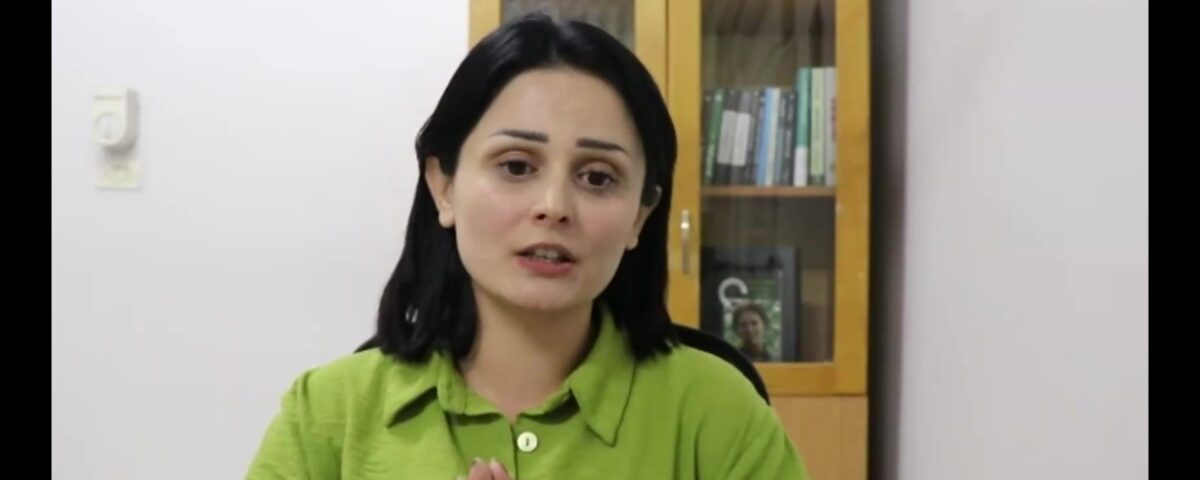On May 9th, the Civil Diplomacy Center, in cooperation with Neighborhood Parliaments in India, organized a webinar on “The Co-Chair System in Rojava – NE Syria”.
The Webinar was presented by a member of the Training and Awareness Committee in Kongra Star, at the same time a member of the Democratic Union Party (PYD) in NE Syria, Bêrîvan Younis
The webinar was attended by 70 members and administrators of Neighborhood Parliaments from India, Europe, and America, to learn from the practical experience of the Rojava Revolution in implementing a system of the Co-Chair System; (Women & Men) equitably in the administration of councils, municipalities, communes and all institutions in the regions of Democratic Autonomous Administration of the Region of North and East Syria (DAARNES).
During the webinar, the historical context of the co-chair was discussed during ancient times, when dual statues of female deities were discovered next to males, such as the duality (Isis/Osiris). Then focus was placed on the co-chair system and its application in modern history in many countries, such as the German Green Party and other organizations and institutions worldwide.
Afterward, the importance of women’s participation in managing all aspects of life was discussed, especially in politics, economics, health, and media, as the level of women’s representation determines the level of freedom, democracy, and progress in countries’ systems.
Bêrîvan Younis also explained the phases of implementing the Co-Chair system in the Rojava Revolution, which was called the “Women’s Revolution.” From the construction of local people’s councils (an alternative to the central system), through the construction of communes and elected municipalities, to the construction of the seven canton councils and the Region NE Syria. The social contract stipulates the necessity of implementing the Co-Chair system and the percentage of women’s representation in all councils and institutions at 50%.
Younis stated that Kongra Star, representing the widely organized women’s movement in NE Syria, has struggled and worked for two decades to implement the presidential system at all levels. She also noted that the Democratic Union Party (PYD) was the first party to implement the co-chair system from the beginning of its founding in 2003 and that many political parties in Rojava – NE Syria have implemented this system during the last ten years, which has strengthened the presence of women in the political and diplomatic arena. Strong participation in crucial decisions and rejection of all forms of violence and gender discrimination.
It is worth mentioning that the Webinar interactively took place and there were many questions and comments from members of the Neighborhood Parliaments in India (NPI), as they praised the importance of the co-chair system in Rojava – NE Syria, as neighborhood parliaments are the practical expression of direct democracy in the “Sociocracy for All” movement. In India, millions of people in tens of thousands of neighborhood parliaments come together regularly to decide how to run the lives of their communities. Just as in Rojava, people meet with their neighbors and make decisions that affect their lives without giving this power to the nation-state government. Also, power in the neighborhood parliament system starts from the bottom.
At the end of the webinar, many valuable opinions were exchanged about ways to protect and support the system of co-chair and DAARNES, in light of the ongoing attacks and threats by the regional nation-state systems, especially the attacks of the Turkish state, with the complicity and silence of the global system. There was a deep sense of hope among the participants to build a life free of violence and racism in the near future.

